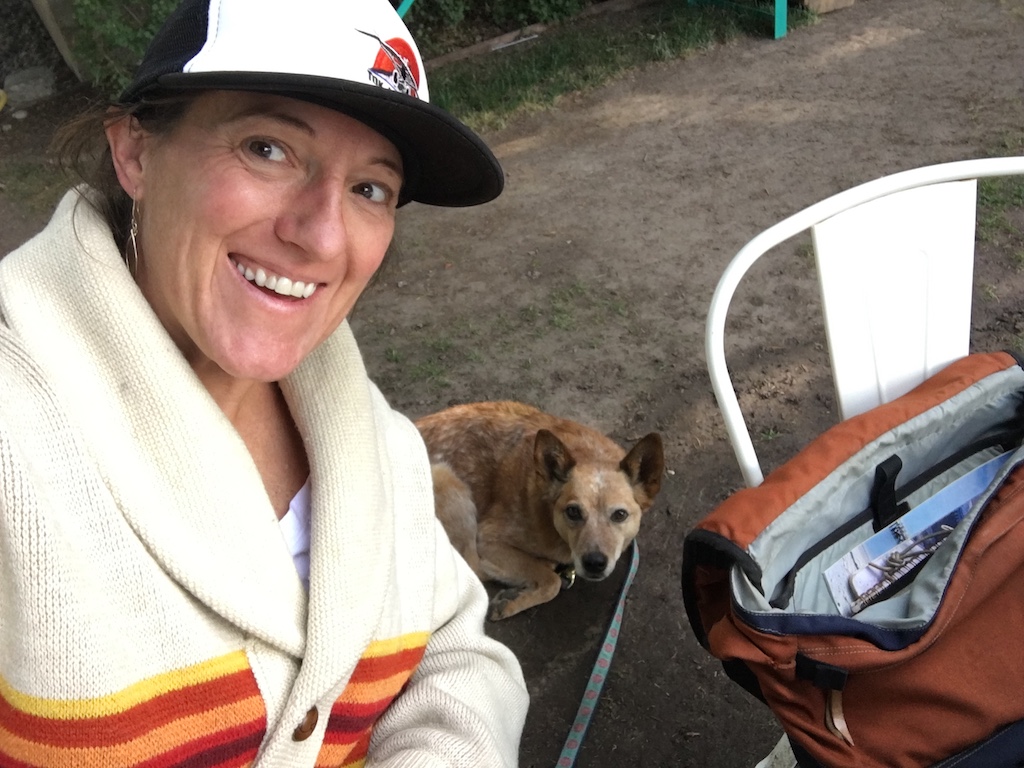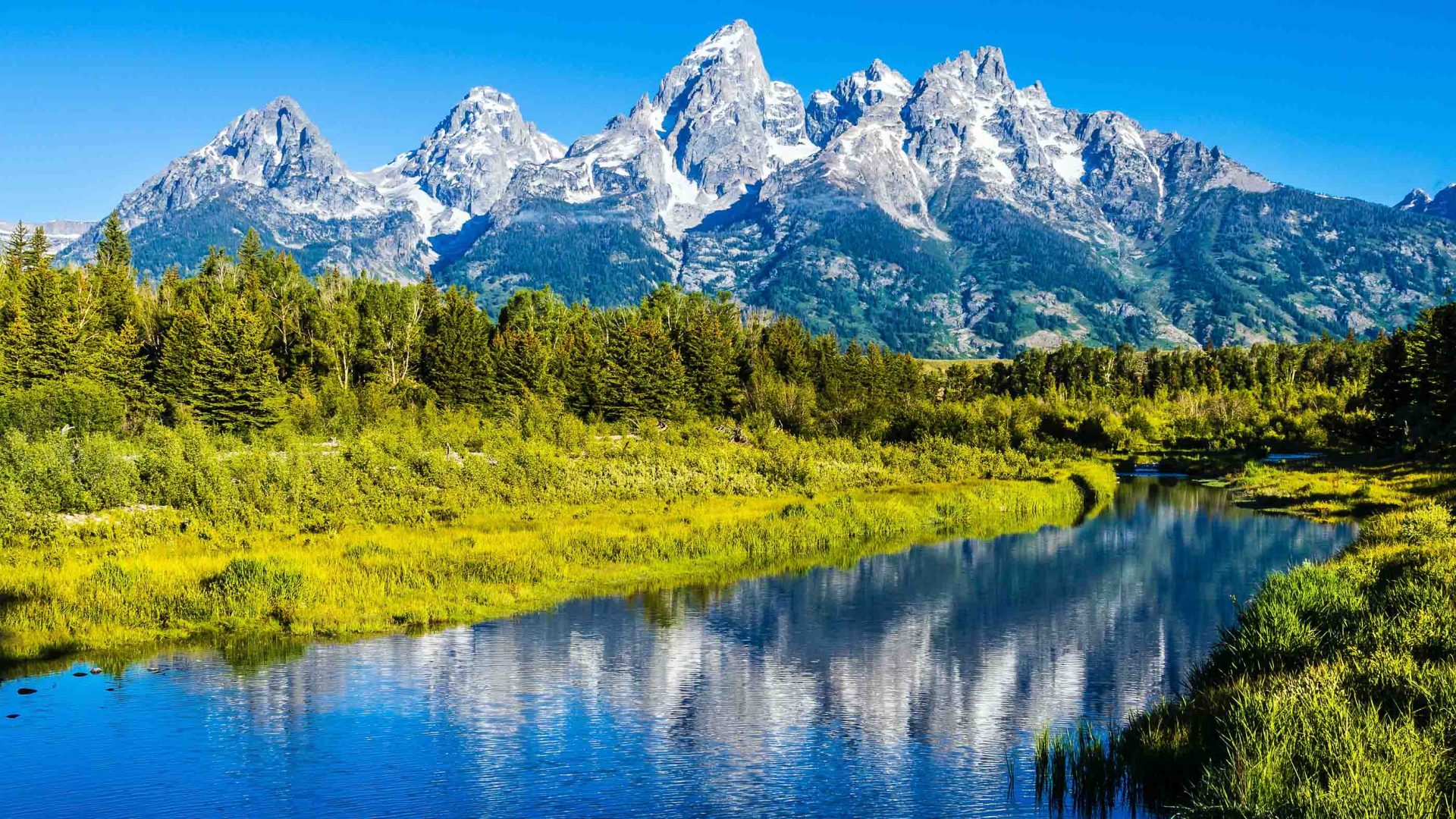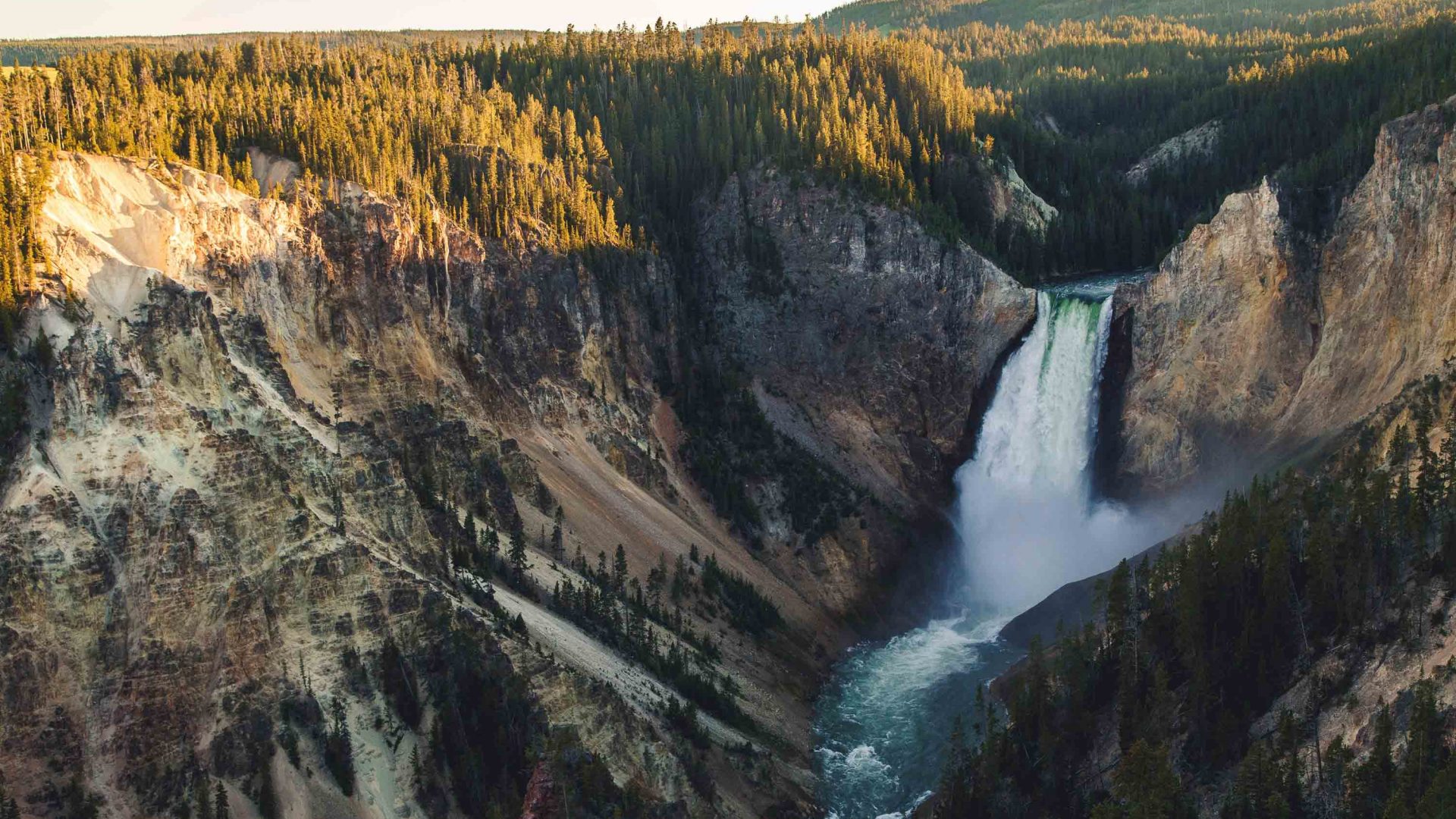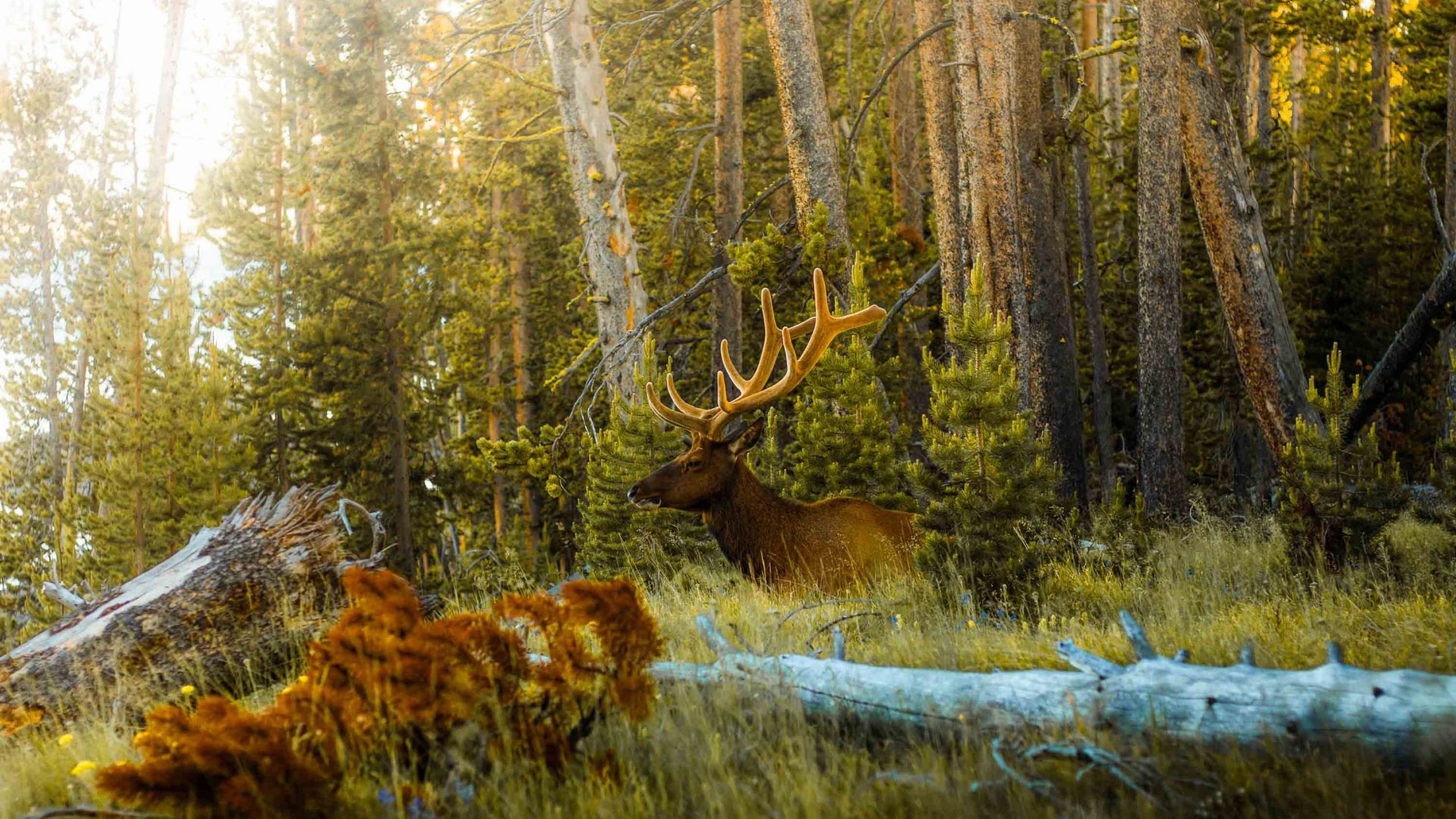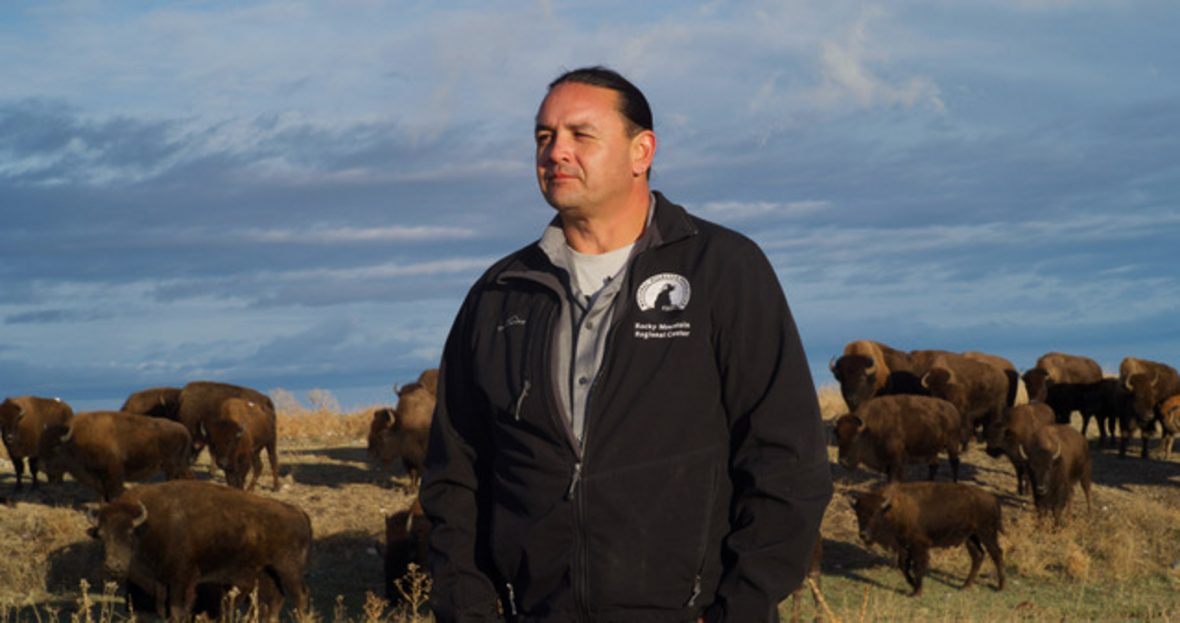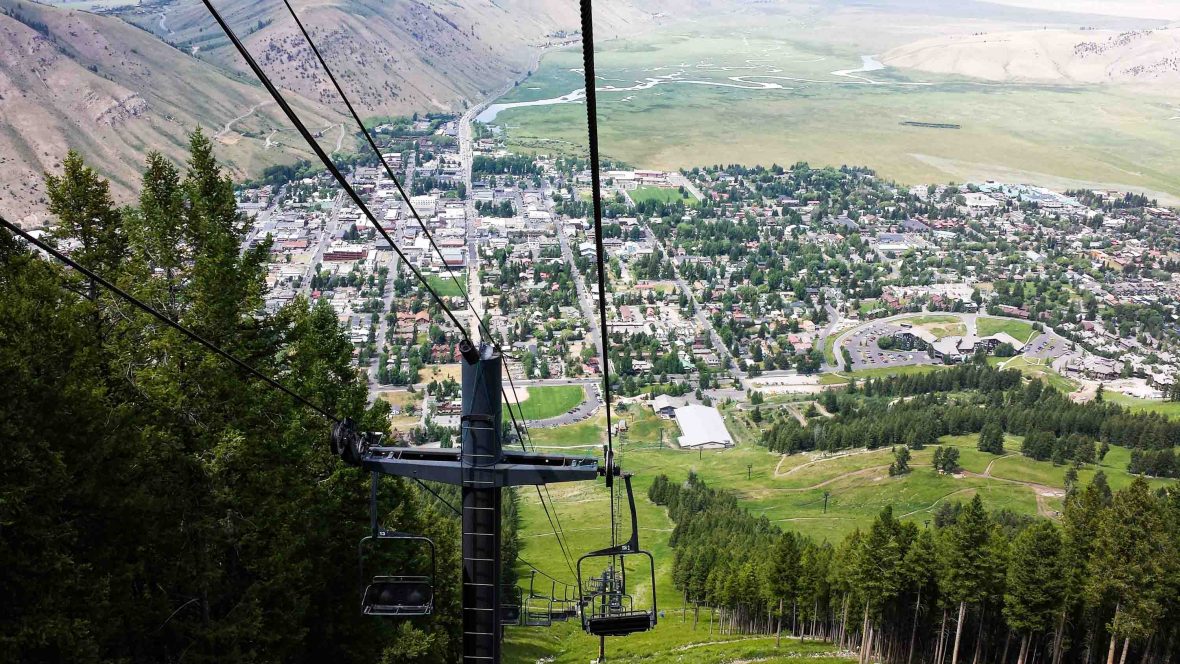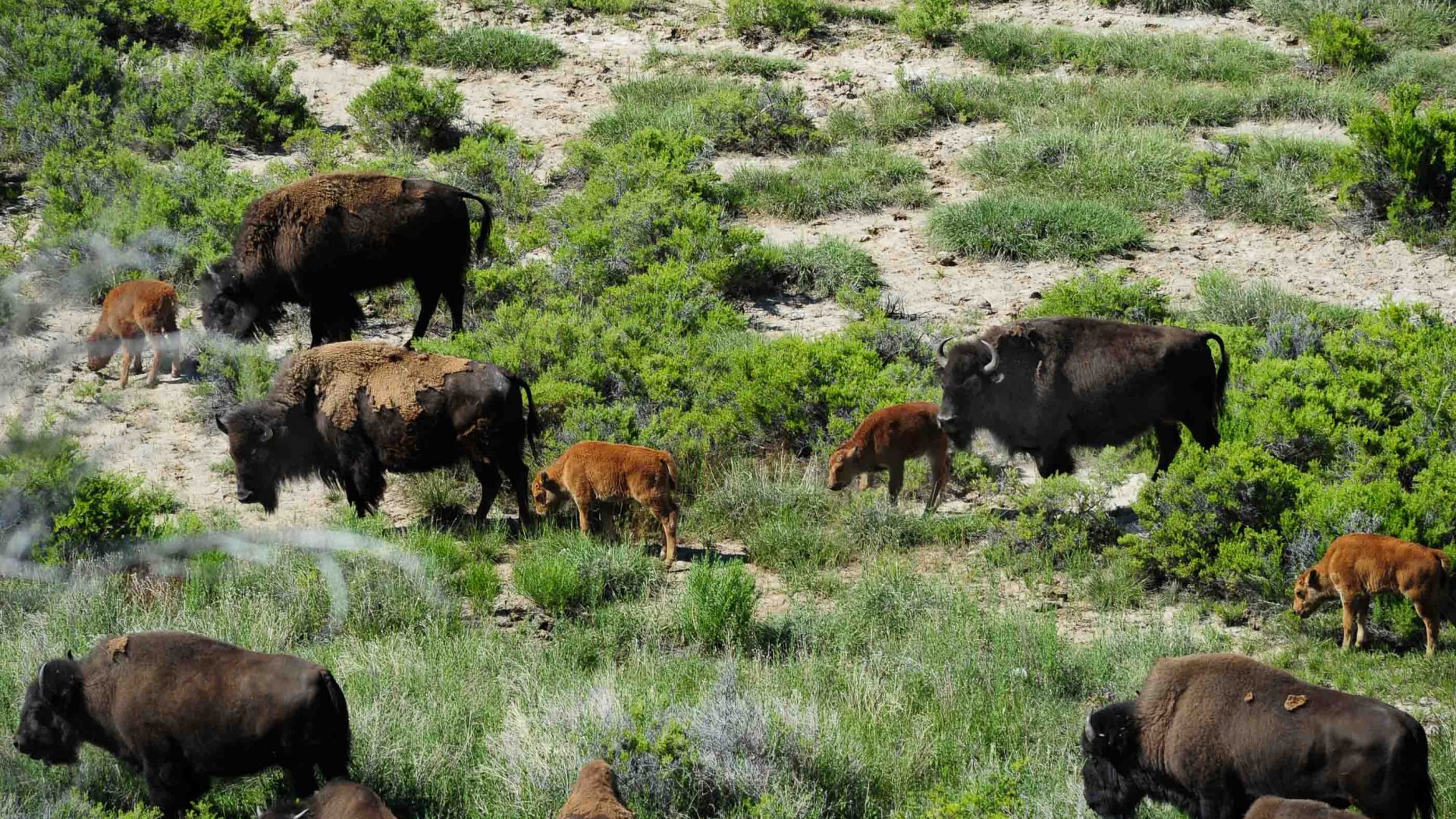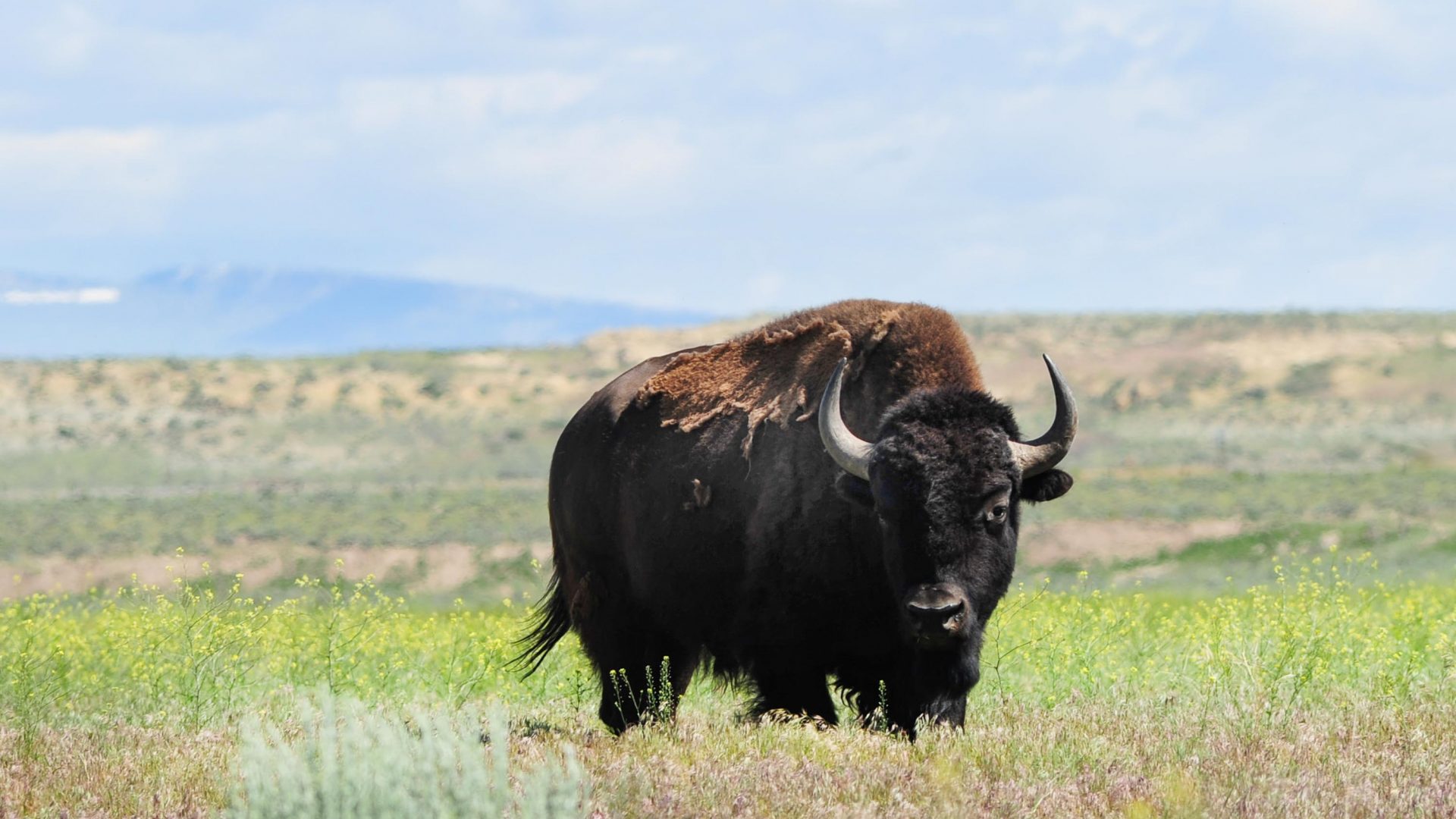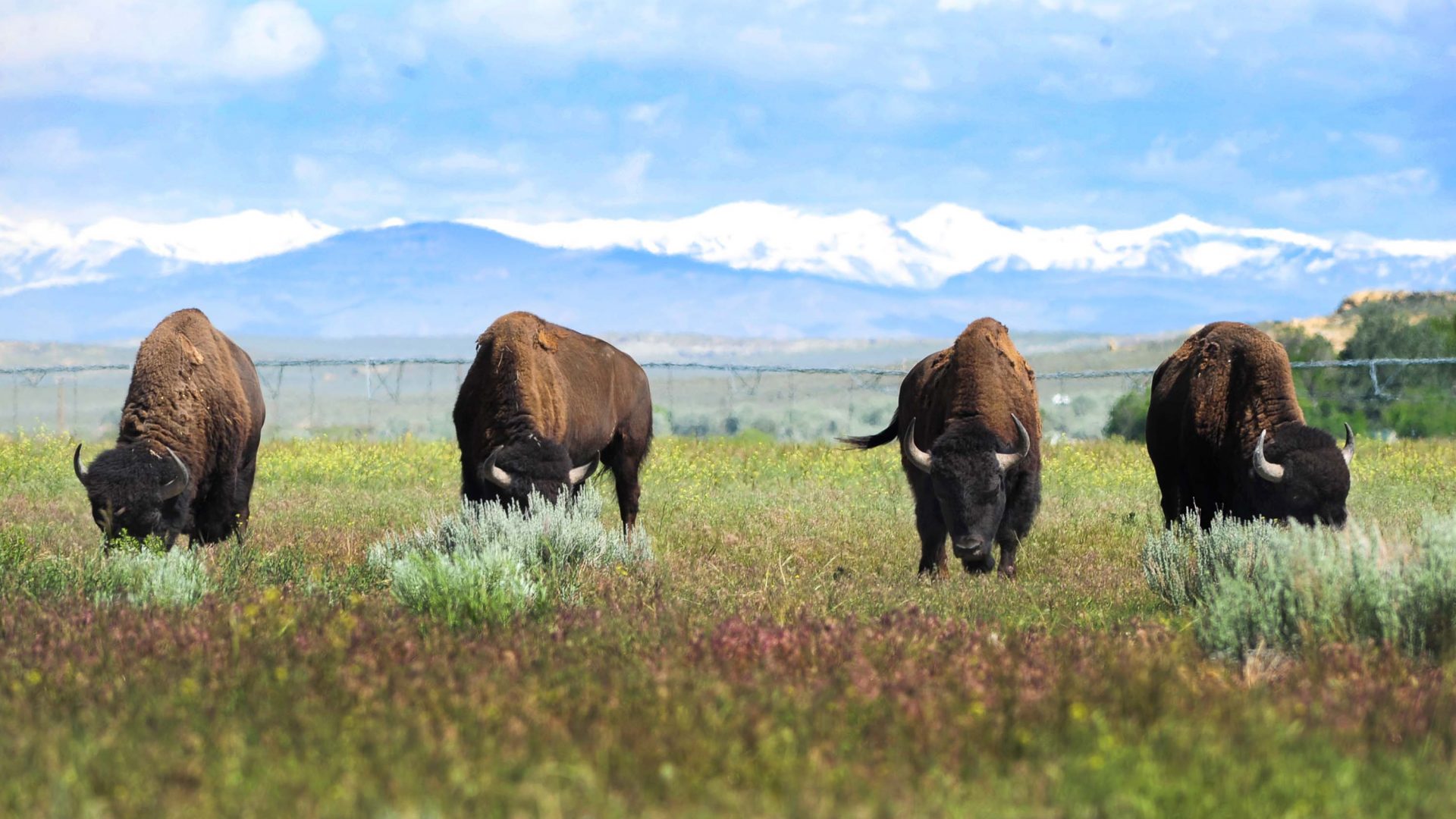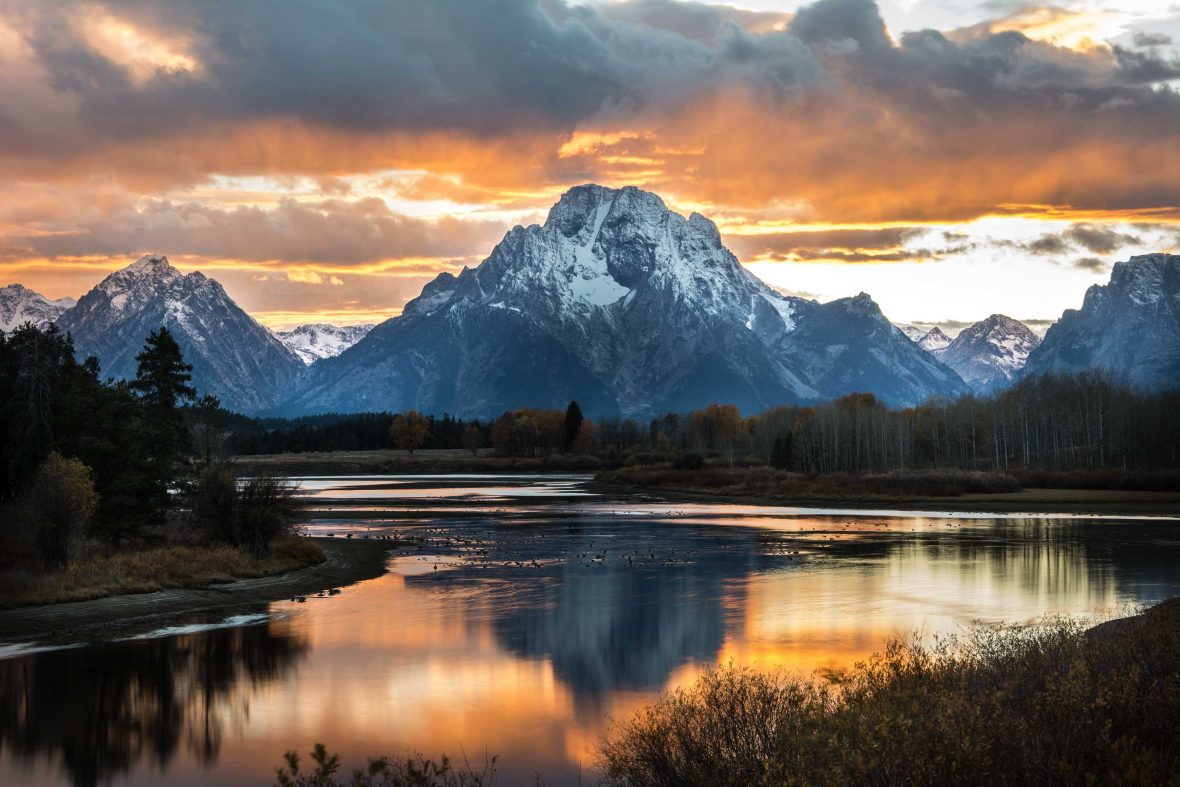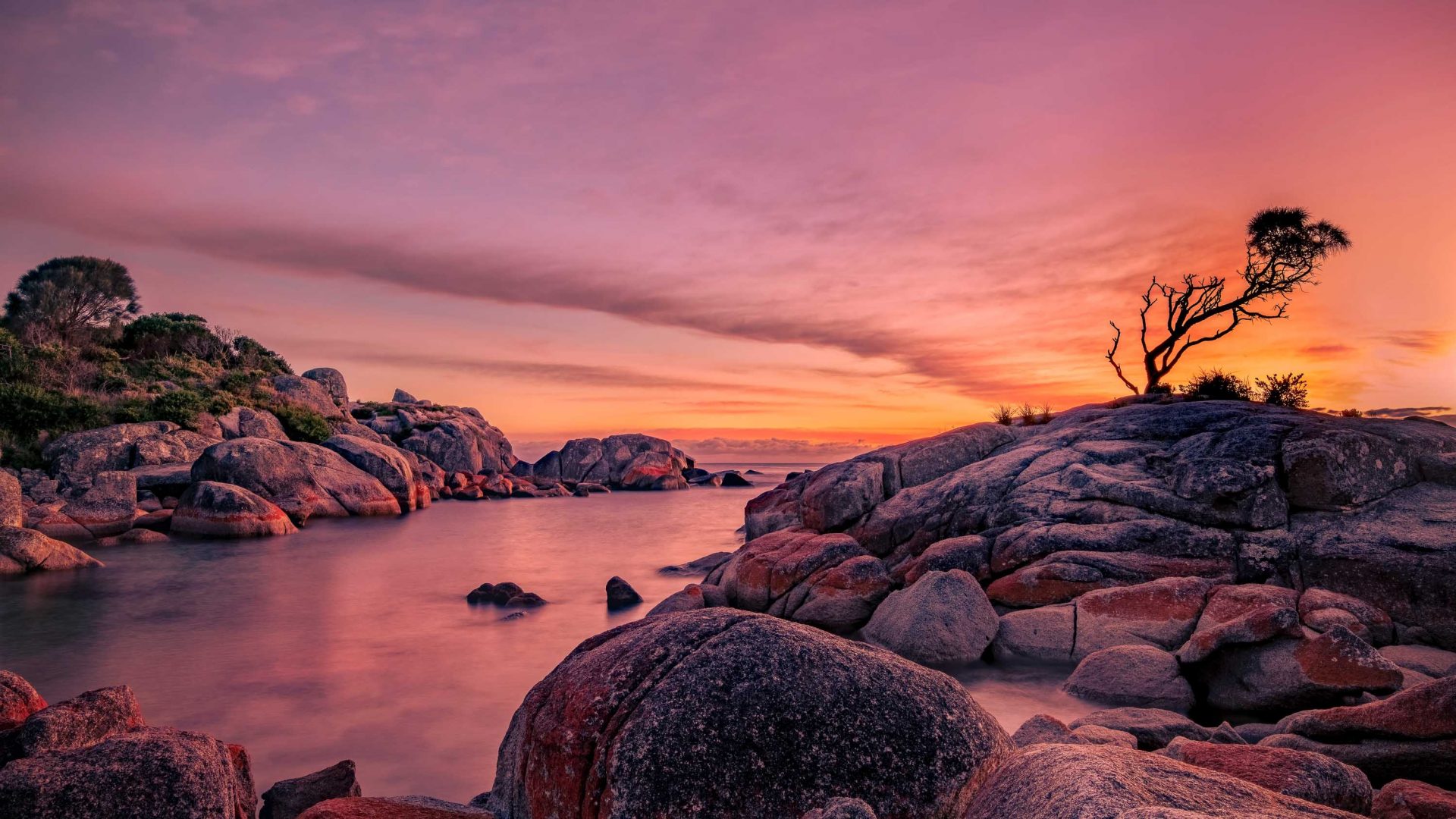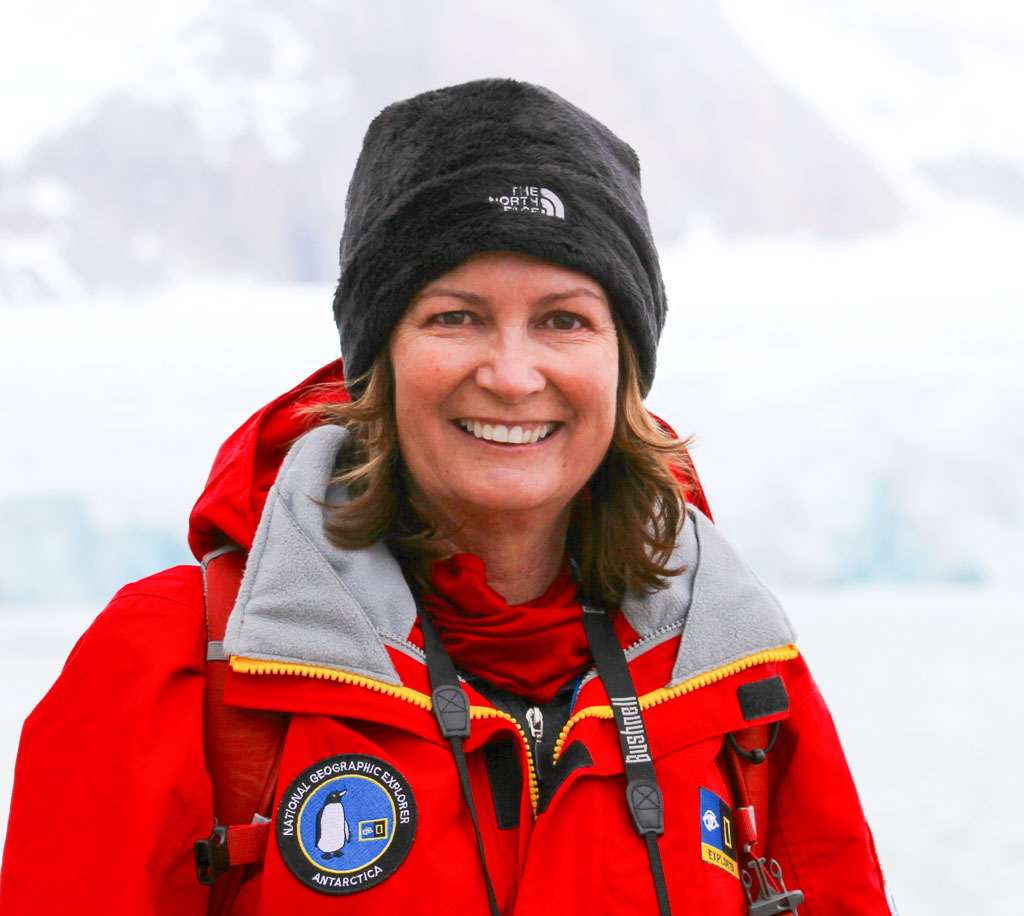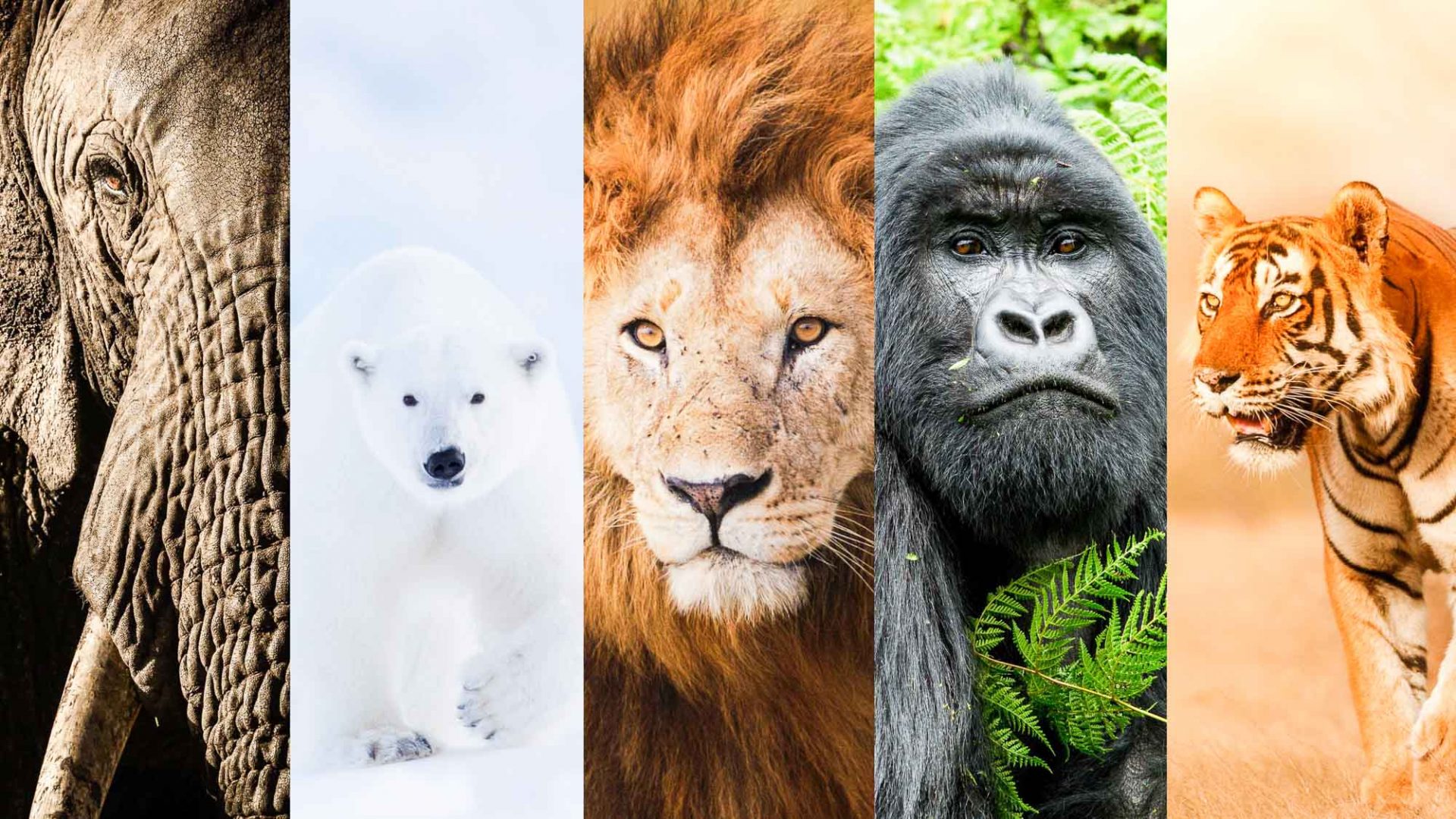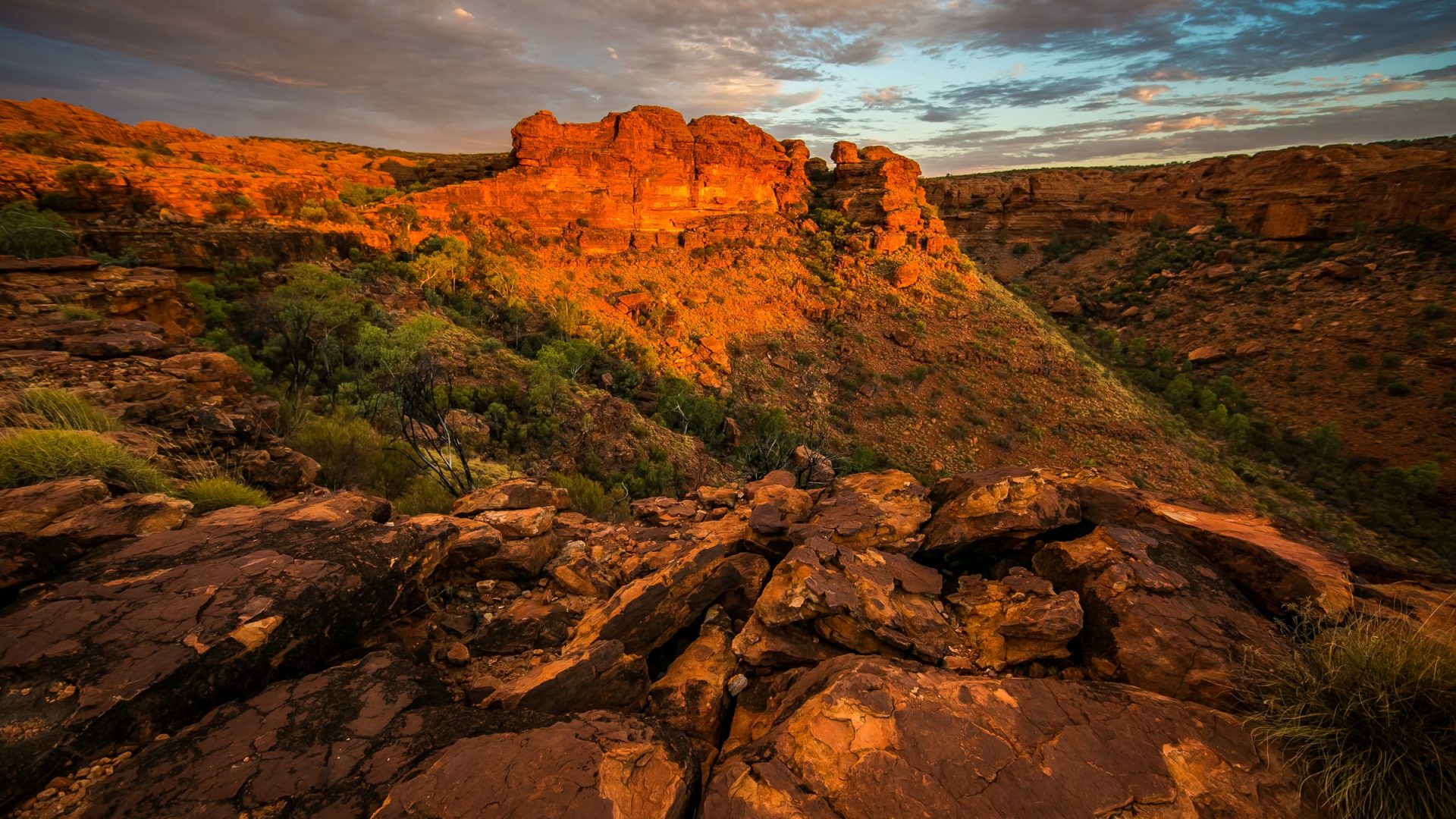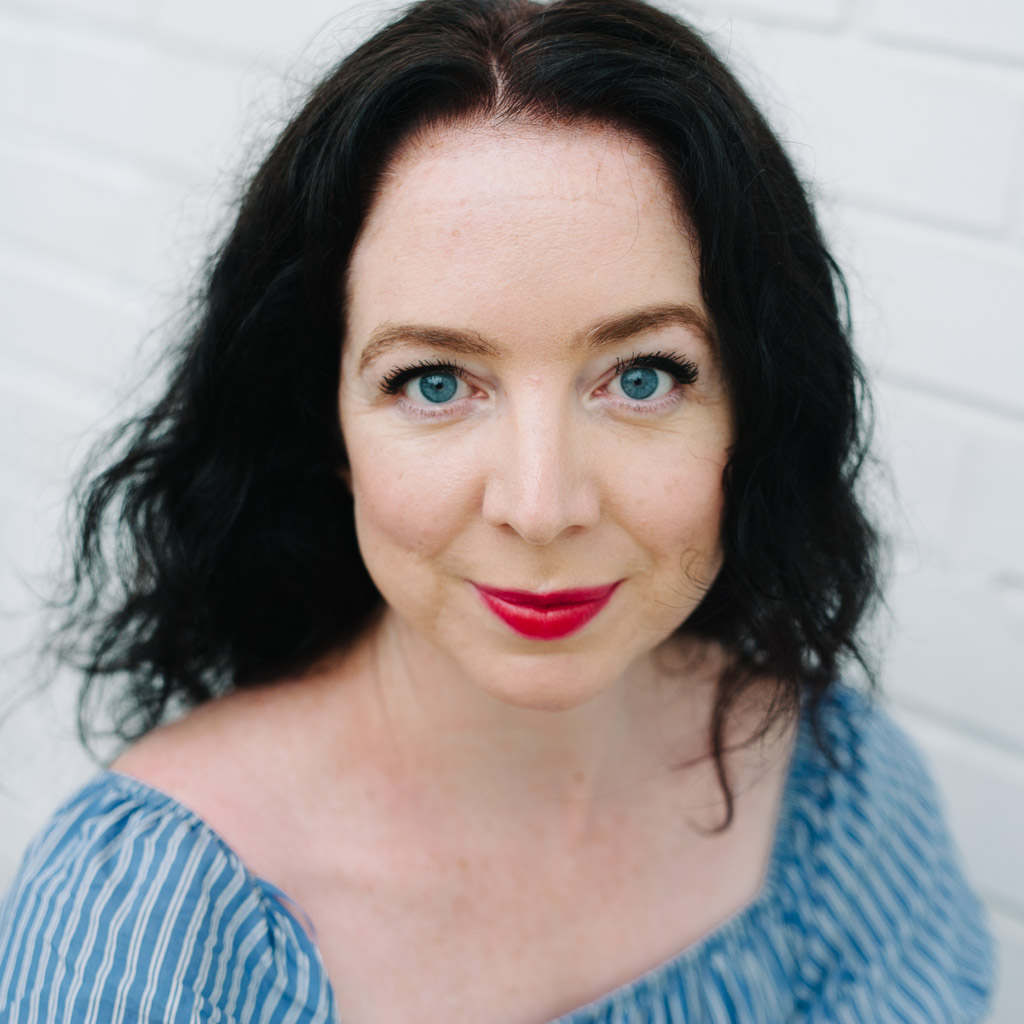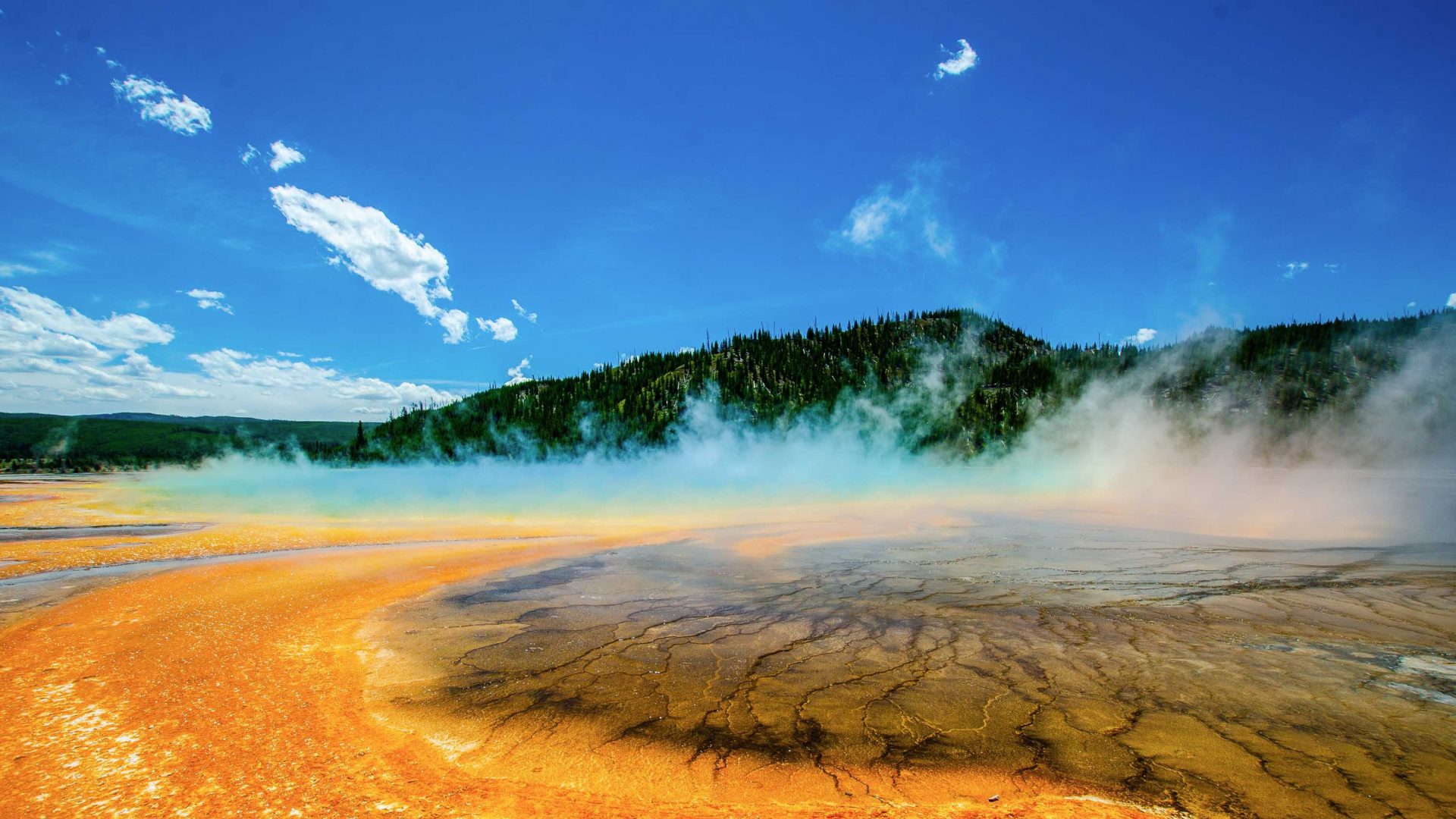
Can conservation in the Greater Yellowstone Ecosystem help pave the way for Indigenous people to reassert stewardship and save the land tourism relies on? In her home state of Wyoming, Brigid Mander looks for answers.
From Jackson Hole, Wyoming, Highway 26 unfurls in two faded lanes: the pavement following the Teton Range and the glittering Snake River. But beyond the blacktop, fields of sagebrush and forests of aspens and pine shelter pronghorn, elk, mule deer, songbirds and raptors, grizzlies and coyotes. As cars like mine rumble by, they go about their lives as if I’m not even here.
The landscape is wonderfully, refreshingly empty of most of modernity’s clutter. It’s filled with what the West was before colonists and settlers arrived—an attribute that has ironically made tourism from around the world the area’s economic engine.
Towns around this area, such as Bozeman or Big Sky in Montana, Jackson in Wyoming, and Victor, Idaho are booming because of the natural richness and conserved open spaces. Bozeman’s population has grown by over 77 percent since 2000. But ensuing sky-high prices and stratification between the haves and have-nots have led to an exodus of working-class residents and community dysfunction. Teton County, where Jackson is located, has the most dramatic economic inequality in the United States—where one percent of residents have 142 times the income of the other 99 percent, according to the Economic Policy Institute in 2018. It’s an imbalance that has become untenable in years since.
These developments have catapulted a conversation about the tension between the natural world and American capitalism onto the national stage. The result is books, podcasts and articles that dive deeply into the inequities of the economy—and of the community—as well as the laws and systems that have made those inequities possible.
There’s Justin Farrell’s book, Billionaire Wilderness. Time Magazine’s feature by Lucas Isokawitz. Coverage from the Boston Globe, Bloomberg and Outside Magazine. But despite all of the media and conversation swirling around equality and resources in this corner of the US, one critical voice is missing: the Eastern Shoshone tribe.
